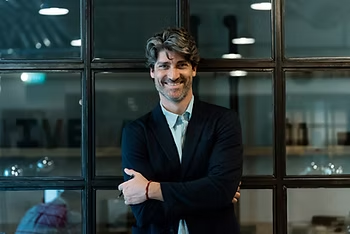There has been much breathless talk of late about ‘The Great Resignation’, a supposed wave of job-quitting in the wake of Covid. Based on what I’ve been seeing and hearing as a career coach, I’m a bit skeptical of this—and on two counts. First, there was plenty of job mobility happening long before the pandemic hit. Second, today’s economic uncertainty is putting many people in an understandably cautious mood when it comes to radical career change.
That said, something has definitely shifted in the psychology of work. I’d like to explore what that something might be.
For the aptly named essential workers in our society, the pandemic meant an often intensified continuation of their roles. But for many others, it meant one of two things: working from home or taking time out from work altogether.
Let’s look at the working-from-home crew first. Thanks to digital technology, core tasks could suddenly be accomplished from a laptop. The rigmarole of the job—getting dressed for work, commuting, office chat, workplace politics, lunch breaks—just fell away. Some found this liberating; others, frankly, found it head-wrecking. For many, that first feeling soon gave way to the second as the novelty wore off.
Even for those who missed being on-site, returning to the workplace was a strange experience. That oh-so-familiar environment had been defamiliarised—made strange. For the first time, we saw just how much of this world-within-a-world was constructed, artificial and (dare we say it?) unnecessary. While we re-acclimatised to the old routines, we could never quite see them the same way again. An uncoupling of core tasks from workplace context had taken place—and the sky hadn’t fallen in.
There is great power in that realisation. Having experienced the unprecedented and the unthinkable, we no longer take things as fixed the way we once might have. While this may not immediately change our short-term career choices, its implications for the future are profound. We’ve been emboldened to see our current circumstances as relative, not permanent. ‘This isn’t forever’—that’s a powerful thought. And in a world where technology is reshaping the way we work faster than we can fully grasp, it’s a necessary one too.
Now, what about the people for whom the pandemic meant paid leave from work? From the outside, it may have looked like traditional unemployment. But because it was government-mandated, with a return to work assumed from the start, its meaning—both socially and personally—was quite different. And oh, what we discovered about ourselves during those long months!
For some furloughed workers, it confirmed how much they loved their jobs. They couldn’t wait to get back. Good for them.
But for others, it offered space for critical reflection. They realised just how much they hated their job, and dreaded returning. It took a global crisis to shake them out of passivity and denial. For the first time, they could see the future as an open horizon, inviting them to chart a new path.
I was speaking recently with a corporate manager who sits on many interview panels. She made an interesting observation about this second group: the Covid hiatus gave many people not just the impetus to reinvent themselves, but also narrative cover. ‘I used the time during lockdowns to reflect on things’—this has become a perfectly respectable thing to say at a job interview.
And if you’re in this second group, but didn’t manage (yet) to make the change you need, know this: it’s not too late. ‘I used that time to reflect, and now I’m acting on the plan I put together’—this is still a perfectly valid and powerful thing to say in 2025.
Here’s to making work work for you in 2025—not by default, but by design.







